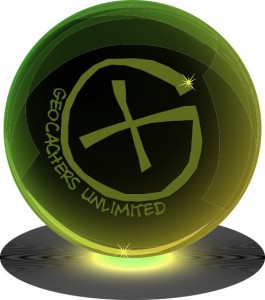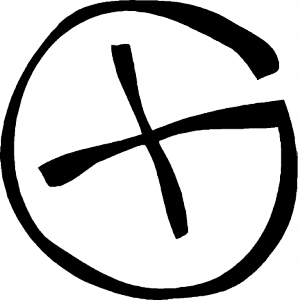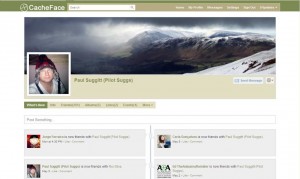Above is a (rather large and nicely done) RSS Feed icon. Might as well go with the Wikipedia definition, as follows:
“RSS Rich Site Summary (originally RDF Site Summary, often dubbed Really Simple Syndication) is a family of web feed formats used to publish frequently updated works—such as blog entries, news headlines, audio, and video—in a standardized format. An RSS document (which is called a “feed”, “web feed”, or “channel”) includes full or summarized text, plus metadata such as publishing dates and authorship.”
Here is an excellent article from Google support, titled Feed 101, should you need to read up more on what RSS feeds are, and how they work (in layman’s terms). Now this blog post could be about just about any subject. But in Geocaching, we do in fact have new web content just about every day of what is bolded in the quote above: blog entries, news headlines, audio, and video.
EDIT: This has become the most viewed post on our blog over time. Hopefully the short overview and links above are helpful to all you search engine visitors!!
By the way, feel free to subscribe to any or all of our own OCNA RSS feeds! Clicking on the RSS feed icon in the sidebar to the right will take you to a page on our site where we have four feeds available. A little shameless self promotion here, the world wide Opencaching network is the only Geocaching listing service entity that seems to have embraced RSS feeds. Geocaching.com seems disinterested (except for their own blog, or in their forums), and I’m not aware of any other alternative sites that offer any feeds of their content at all. In addition to the latest caches, the latest log entries, our latest news and this blog, you can also get feeds via your profile on our site of your own cache logs, and the logs posted to your owned caches.
So what was the failed experiment? In March, we at Opencaching North America launched a weekly “Geocaching in the news” newsletter generated by the service Paper.li. If you’re on Twitter, you’ve seen these newsletters, believe me! There are literally dozens in the Twittersphere dedicated to Geocaching alone. Most people generate their content from tweets from the people they follow on Twitter. We noticed you can also generate the content from RSS feeds, and thought we could generate better content than most. However, half the time, the various RSS feeds generated no content through paper.li, and in addition to that, the newsletter didn’t auto-tweet for three weeks. So after only six weeks, we announced the elimination of this failed experiment.
On the sidebar of this blog, you will see six RSS feeds, seven if you count the Twitter feed as one (which it technically is). This could use some serious improvement too, the blogger “RSS feed Widget” generates fresh web content, but it sort of reminds me of a screen shot from a Unix terminal or something! And as of the date of this post, the widget is not generating the “authors” of the Podcasts, so it’s hard to tell which one is which. This brings us to our new experiment, where you have a chance to be a BETA tester.

This is Freddie, the mascot for MailChimp.com. Don’t worry, we’re in full compliance with their brand assets page to use his image here! MailChimp offers an RSS to email newsletter service. We would like to try this out, using the six feeds seen below our Twitter feed on the sidebar (by the way, the Videos and Podcasts are “feed mixes”, already generated by MailChimp). This would be a weekly newsletter in various formats, and would contain graphics from several of the feeds, with the HTML version, and we would assume the mobile version as well. I guess we’ll find out on the mobile version, seeing as you are BETA testers!
Want to subscribe to this new RSS feed generated Geocaching newsletter? Just enter your email address in the basic form below. You must opt-in to receive this newsletter (per MailChimp.com guidelines), and this post is the only place the form is being shown (for a while, at least). We don’t like deadlines here at the OCNA blog, but we should have no problem setting up the template, and getting the first edition out by May 15th, two weeks from the date of this post.
EDIT: Beta RSS newsletter was aborted, sign-up form that appeared below this line deleted.








